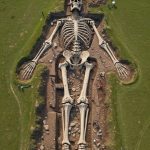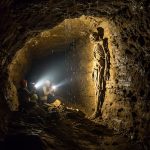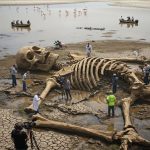The Forgotten Empire Beneath Our Feet: Humanity’s Greatest Lost Civilization Unearthed!
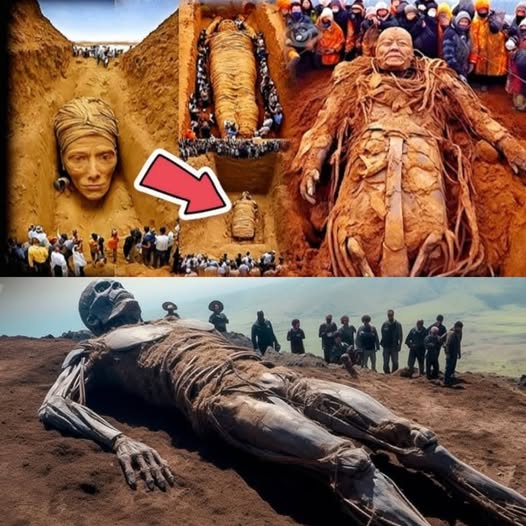
In a groundbreaking discovery that is rewriting everything we thought we knew about human history, archaeologists have unearthed the vast remnants of a previously unknown civilization buried deep beneath layers of earth. This astonishing find spans hundreds of miles, revealing an ancient world marked by monumental temples, intricate canals, and symbols that defy translation, challenging our understanding of early human societies.

Carbon dating places the site millennia before the rise of Mesopotamia, hinting at an origin story far older than recorded time. This discovery raises profound questions about the timeline of human development and the evolution of complex societies. How could such a sophisticated civilization exist without leaving behind the historical records we typically associate with advanced cultures?
Satellite scans have unveiled lost cities swallowed by both jungle and desert, revealing a landscape that was once bustling with life and activity. The evidence of extensive urban planning, including well-engineered irrigation systems and monumental architecture, suggests a society that was not only advanced in its engineering but also deeply connected to its environment. This civilization may have thrived by mastering the challenges posed by their surroundings, adapting in ways that have long been overlooked.
Even more perplexing are the strange metallic relics unearthed from the ruins, which exhibit traces of advanced technology that seem incongruent with the era. These artifacts provoke speculation about the capabilities of this lost civilization: did they possess knowledge and tools that modern science has yet to fully understand? Could this be the cradle of civilization—or evidence of something far more mysterious?
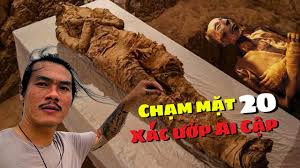
As scientists dig deeper, the earth itself seems to whisper forgotten truths about humanity’s shadowed past. The artifacts and structures are rich with stories waiting to be told, urging researchers to reconsider the narratives that have dominated our understanding of history. What cultural practices, beliefs, and innovations did this civilization embody?
The implications of this discovery extend beyond academic interest; they invite us to reflect on our own place in the continuum of human history. As we uncover the layers of this forgotten empire, we are reminded that the past is often more complex and nuanced than we comprehend. The Forgotten Empire beneath our feet challenges us to look beyond the surface and engage with the mysteries that define our shared human journey. What other secrets lie hidden, waiting for the right moment to emerge and reshape our understanding of who we are?






